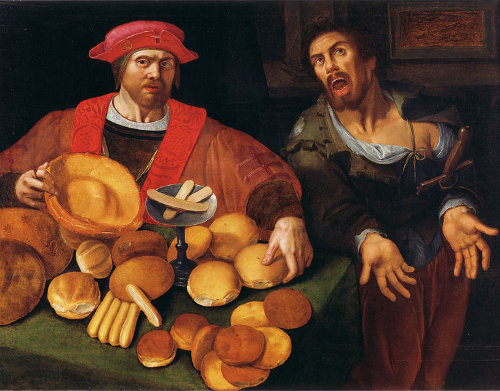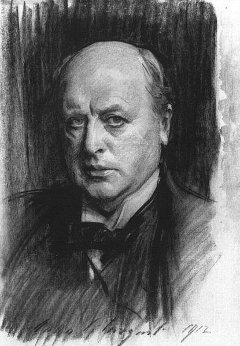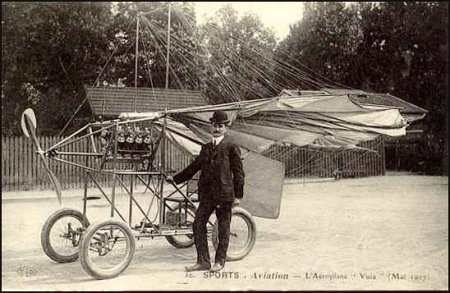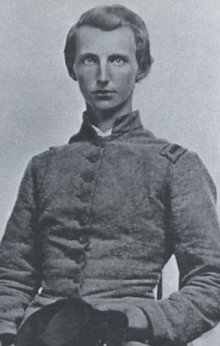
“Men do not desire merely to be rich, but to be richer than other men.” — John Stuart Mill

“Men do not desire merely to be rich, but to be richer than other men.” — John Stuart Mill

“I’m glad you like adverbs,” wrote Henry James to a correspondent. “I adore them; they are the only qualifications I really much respect, and I agree with the fine author of your quotations in saying — or in thinking — that the sense for them is the literary sense. None other is much worth speaking of.”
As Somerset Maugham prepared to write Of Human Bondage, “I began with the impossible aim of using no adjectives at all. I thought that if you could find the exact term a qualifying epithet could be dispensed with. As I saw it in my mind’s eye my book would have the appearance of an immensely long telegram in which for economy’s sake you had left out every word that was not necessary to make the sense clear. I have not read it since I corrected the proofs and do not know how near I came to doing what I tried. My impression is that it is written at least more naturally than anything I had written before.”
Edgar Allan Poe bewailed the passing of the dash. “The Byronic poets were all dash,” he complained. “The dash gives the reader a choice between two, or among three or more expressions, one of which may be more forcible than another, but all of which help out the idea. It stands, in general, for these words — ‘or, to make my meaning more distinct’. This force it has — and this force no other point can have; since all other points have well-understood uses quite different from this. Therefore, the dash cannot be dispensed with.”
When a Boston girl took Mark Twain to task for splitting infinitives, he confessed that “I have certain instincts, and I wholly lack certain others. (Is that ‘wholly’ in the right place?) For instance, I am dead to adverbs; they cannot excite me. To misplace an adverb is a thing which I am able to do with frozen indifference; it can never give me a pang. … I know thoroughly well that I shall never be able to get it into my head. Mind, I do not say I shall not be able to make it stay there; I say and mean that I am not capable of getting it into my head. There are subtleties which I cannot master at all, — they confuse me, they mean absolutely nothing to me, — and this adverb plague is one of them.”
From the 2000 Indiana College Mathematics Competition:
Four suspects, one of whom was known to have committed a murder, made the following statements when questioned by police. If only one of them is telling the truth, who did it?
Arby: Becky did it.
Becky: Ducky did it.
Cindy: I didn’t do it.
Ducky: Becky is lying.

Mr. X, who thinks Mr. Y a complete idiot, walks along a corridor with Mr. Y just before 6 p.m. on a certain evening, and they separate into two adjacent rooms. Mr. X thinks that Mr. Y has gone into Room 7 and himself into Room 8, but owing to some piece of absent-mindedness Mr. Y has in fact entered Room 6 and Mr. X Room 7. Alone in Room 7 just before 6, Mr. X thinks of Mr. Y in Room 7 and of Mr. Y‘s idiocy, and at precisely 6 o’clock reflects that nothing that is thought by anyone in Room 7 at 6 o’clock is actually the case. But it has been rigorously proved, using only the most general and certain principles of logic, that under the circumstances supposed Mr. X just cannot be thinking anything of the sort.
— A.N. Prior, “On a Family of Paradoxes,” Notre Dame Journal of Formal Logic, 1961

Here’s the floor plan of a house with five rooms. Can you draw a continuous line that passes through each of the 16 wall segments once and once only? If it’s possible, show how; if it’s not, explain why.
My heart is gayly purzed as if it wuy
Ra buyd about to dart in jeryous flight
To you; my darling, may it but alight
On vuygin surl. And may it not incuy
Your anger or disdain. ‘Tis but a fleuy
D’amour, and if you spuyn it you will blight
Its life as if some purzon in the night
Had been instilled into its depths. You stuy
My soul into a tuymurl. If you’ve turyed
With me, I fain would hie me to a clurster,
Wherein my heart would never be annuryed
By thoughts of love. My eyes grow murst and murster
At contemplating such an aching vurd —
O grant me, then, the sang-froid of an urster.
— Margaret Fishback, One to a Customer, 1937

We have 27 wooden cubes. The first is marked A on every face, the second B, and so on through the alphabet to Z. The 27th cube is blank. Is it possible to assemble these cubes into a 3×3×3 cube with the blank cube at the center, arranging them so that cube A adjoins cube B, cube B adjoins cube C, and so on, forming a connected orthogonal path through the alphabet?
propreantepenultimate
adj. last but four
(Thanks, Aleksejs.)

Letter to the Times, April 27, 1910:
Sir,
Motor-cars are bad enough, but they do not come into one’s house or garden. With aeroplanes total strangers may drop in, through the roof, for a little chat at any time. I fear the law cannot protect one against such intrusion. If aviation becomes popular I shall have spikes, with long strong prongs, fixed on the chimneys of my house, and the word ‘Danger’ painted in large red letters on a flat part of the roof. If any flying machines come down in my garden I shall send for the police to remove the occupants, whom I shall sue afterwards for any damage to my trees or shrubs.
I am, Sir, your obedient servant,
H.B. Devey

Confederate officer Tod Carter had been away from home for three years when he found himself crossing into his beloved Tennessee in late 1864 with Lt. Gen. John Bell Hood. As they approached his hometown of Franklin, Carter received permission to pass ahead and visit his family, but he found that Federal forces had commandeered the house to serve as headquarters in the coming battle. Miserably he returned to camp.
On Nov. 30, while Carter’s family and friends cowered in the house’s stone basement, Hood’s forces collided with those of Union general John Schofield. The battle produced 10,000 casualties in five hours; around the house men fought viciously with bayonets, rifle butts, axes, and picks. Carter’s older brother Moscow later wrote, “While the terrible din of the battle lasted it seemed to the adults that they must die of terror if it did not cease, but when there was a lull the suspense of fearful expectation seemed worse than the sound of battle.”
As a quartermaster, Tod might have been spared the danger; his duties did not involve combat. But, wrote Ralph Neal in a company history, “It was on the first charge and when nearest the enemy’s works that Capt. Todd Carter dashed through our lines on his horse with drawn sword, made straight for his father’s house, and met his death as it were, on the very threshold of his parental home. He was perhaps not more than fifty feet from us when he fell; his horse was seen to plunge and we knew he was struck. Captain Carter was thrown straight over the horse’s head, his sword reached as far as his arm would allow toward the enemy, and when he struck the ground he laid still, and his brave young life went out almost at the door of his home.”
“The sight of home and all that makes home dear, and that home in possession of the enemy caused him to forget himself, and under the impulse of the moment he rushed to certain death.”